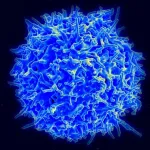Open-label placebo works as well as double-blind placebo in irritable bowel syndrome
First-of-its-kind study compares performance of open-label placebo to blinded placebo
2021-03-30
(Press-News.org) Boston - For decades, the power of the placebo effect was thought to lie in patients' belief that they were -- or at least, could be -- receiving a pharmacologically active treatment. A new study by physician-researchers at Beth Israel Deaconess Medical Center (BIDMC) suggests that patients don't need to be deceived to receive benefit from treatment with placebo.
In a randomized clinical trial published in the journal PAIN, researchers found participants with moderate to severe irritable bowel syndrome (IBS) who were knowingly treated with a pharmacologically inactive pill -- referred to as an honest or open-label placebo -- reported clinically meaningful improvements in their IBS symptoms. People who received the open-label placebo experienced improvements that were significantly greater than those reported by participants assigned to a no-pill control group. There was no difference in symptom improvement between those who received open-label or double-blind placebos. The results build on the research team's previous findings and challenge the long-held notion that concealment or deception are key elements in the placebo effect.
"The clinical response to open-label placebo in this six-week trial was high, with 69 percent of participants who received open-label placebo reporting a clinically meaningful improvement in their symptoms," said first and corresponding author Anthony J. Lembo, MD, Professor of Medicine in the Division of Gastroenterology at BIDMC. "IBS is one of the most common reasons for healthcare consultations and absenteeism from work or school. Effective treatment options for IBS are limited, and we hypothesized it may be possible to ethically harness the placebo effect for clinical benefit."
For the rigorously designed clinical trial, researchers enrolled 262 adult participants, 18 to 80 years old with at least moderately severe irritable bowel syndrome, as measured by the validated IBS-Severity Scoring System (IBS-SSS), which measures frequency and severity of abdominal pain and distention, quality of life and other relevant factors across a scale of 0-500. Participants were examined, filled out baseline questionnaires and were randomized into one of three study arms; open-label placebo; double-blind (which included double-blind placebo or double-blind peppermint oil); or no-pill control. During their examinations, all participants discussed the placebo effect, the trial and its aims with their physicians.
The open-label group received pill bottles labeled "open-label placebo," and were told that the pills inside were pharmacologically inert, but could make them feel better through the placebo effect. The double-blind group received pill bottles labeled "double-blind placebo or peppermint oil." Participants in the double-blind group received either a placebo or an identical pill containing peppermint oil, but neither they nor the research team knew which they received. All participants who received pills were instructed to take one pill three times a day, 30 minutes before meals. The no-pill control group received no pills but otherwise followed identical study protocol. During return visits three and six weeks into the study, all participants completed questionnaires, were verbally asked about adverse events and briefly met with a study physician.
Lembo and colleagues -- including senior author, Ted J. Kaptchuk, Director of the Program in Placebo Studies and the Therapeutic Encounter at BIDMC -- found that improvement in IBS-SSS scores from baseline to the six-week endpoint was significantly greater in the open-label placebo group compared to the no-pill control group. Additionally, participants in the double-blind placebo group also saw superior symptom improvement compared to the no-pill control group, but the double-blind and open-label groups were not different from each other.
Next, the researchers performed a post hoc analysis of the participants who experienced large clinical improvements -- those who improved by at least 50 points and by at least 150 points, considered strong and very strong clinical responses, respectively. A greater percentage of participants in the open-label placebo and double-blind placebo groups reported a 50 point reduction in IBS severity score compared to the no-pill control group (approximately 70 percent in each placebo group compared to 54 percent in the no pill control group). Similarly, approximately 30 percent of open-label placebo and double-blind placebo participants reported a 150 point reduction in IBS symptoms, compared to only 12 percent of the no-pill group.
"If the presumption that deception is necessary for placebos to be effective is false, then many theories about the mechanisms that drive placebo effects may need modification," said Kaptchuk, who with colleagues in 2010, published the results of the first randomized controlled trial to show that patients with IBS responded well to treatment with open-label placebo. Subsequent research has demonstrated similar findings in patients with what they call subjective symptoms, including low back pain, knee pain, cancer-related fatigue, migraine headaches, menopausal hot flashes, and allergic rhinitis. "Our finding that openly prescribed placebo may be as effective as double-blinded placebo has implications for clinical practice and for future research, especially in chronic visceral and somatic pain conditions."
INFORMATION:
In addition to Lembo and Kaptchuk, co-authors include Judy Nee, MD, Sarah Ballou, PhD, Johanna Iturrino, MD, Vivian Cheng, MS, MPH, Vikram Rangan, MD, Jesse Katon, BS, William Hirsch, BS, Irving Kirsch, PhD, and Roger B. Davis, ScD of BIDMC; John M. Kelley, PhD, of Endicott College and BIDMC; and Kathryn Hall, PhD, of Brigham and Women's Hospital and BIDMC.
This study was supported in part by a grant from the National Institutes of Health (R01AT008573). Ted Kaptchuk is partially supported by a grant from the Foundation for the Science of the Therapeutic Encounter. There are no conflicts of interests for the authors.
About Beth Israel Deaconess Medical Center
Beth Israel Deaconess Medical Center is a patient care, teaching and research affiliate of Harvard Medical School and consistently ranks as a national leader among independent hospitals in National Institutes of Health funding. BIDMC is the official hospital of the Boston Red Sox.
Beth Israel Deaconess Medical Center is a part of Beth Israel Lahey Health, a health care system that brings together academic medical centers and teaching hospitals, community and specialty hospitals, more than 4,000 physicians and 35,000 employees in a shared mission to expand access to great care and advance the science and practice of medicine through groundbreaking research and education.
ELSE PRESS RELEASES FROM THIS DATE:
2021-03-30
LAWRENCE -- Recent incidents of racial discrimination and violence against Asians and Asian-Americans in the United States have prompted critical discussions about how to talk about such biases with younger age groups. New research from the University of Kansas shows using critical race media literacy, or examining how race and gender are addressed in popular culture, can be an effective way to discuss those topics and engage students.
KU researchers published a study in which they observed an American teacher using critical race media literacy to discuss racism and sexism in superhero movies in English as a foreign language classes in a South Korean high school. They argued that successful implementation ...
2021-03-30
Through his role on the U.S. Preventive Services Task Force, UVA Health's Li Li, MD, PhD, MPH, has helped develop new lung cancer screening guidelines that expand screenings to more high-risk patients.
The new guidelines are focused on Americans at higher risk because of their history of smoking, which is the leading cause of lung cancer. There are two significant changes in the new guidelines. For those who are still smoking or quit less than 15 years ago, a yearly screening using a low-dose computed tomography (CT) scan is now recommended:
beginning at age 50, instead of age 55.
for anyone who has smoked 20 pack-years in their lifetime, instead of 30 pack-years. A pack-year equals smoking a pack of cigarettes a day for a year.
The ...
2021-03-30
Physicists from the University of Sussex have developed an extremely thin, large-area semiconductor surface source of terahertz, composed of just a few atomic layers and compatible with existing electronic platforms.
Terahertz sources emit brief light pulses oscillating at 'trillion of times per second'. At this scale, they are too fast to be handled by standard electronics, and, until recently, too slow to be handled by optical technologies. This has great significance for the evolution of ultra-fast communication devices above the 300GHz limit - such as that required for 6G mobile phone technology - something that is still fundamentally beyond the limit of current electronics.
Researchers ...
2021-03-30
People are adept at discerning most of the different emotions that underlie screams, such as anger, frustration, pain, surprise or fear, finds a new study by psychologists at Emory University. Screams of happiness, however, are more often interpreted as fear when heard without any additional context, the results show.
PeerJ published the research, the first in-depth look at the human ability to decode the range of emotions tied to the acoustic cues of screams.
"To a large extent, the study participants were quite good at judging the original context of a scream, simply by listening to it through headphones without any visual cues," says Harold Gouzoules, Emory professor of psychology and senior author of the study. ...
2021-03-30
WHAT:
When variants of SARS-CoV-2 (the virus that causes COVID-19) emerged in late 2020, concern arose that they might elude protective immune responses generated by prior infection or vaccination, potentially making re-infection more likely or vaccination less effective. To investigate this possibility, researchers from the National Institute of Allergy and Infectious Diseases (NIAID), part of the National Institutes of Health, and colleagues analyzed blood cell samples from 30 people who had contracted and recovered from COVID-19 prior to the emergence of virus variants. They found that one key player in the immune response to SARS-CoV-2--the CD8+ T cell--remained active against the virus.
The research team was led by NIAID's Andrew Redd, Ph.D., and included ...
2021-03-30
Indigenous traditions often place land at the centre of their cultures. However, with more than half of Canada's Indigenous population now living in urban areas and Indigenous communities struggling to overcome legacies of colonialism defined by assimilation and land theft, that connection is getting frayed.
Elizabeth Fast, an associate professor of applied human sciences in the Faculty of Arts and Science, wanted to help Indigenous youth reconnect with their cultures in safe and accessible ways. Along with a youth advisory group composed of Indigenous youth (some of whom are also students), she has been organizing a series of land-based learning retreats ...
2021-03-30
BOSTON - (March 25, 2021) - A mechanism has been identified that explains how physical exercise in pregnancy confers metabolic health benefits in offspring. According to researchers, the key lies with a protein called SOD3, vitamin D and adequate exercise, with the outcomes possibly forming the first steps to designing rational diet and exercise programs to use during pregnancy and particularly when mothers may also be overweight or obese.
The study, which was led by authors from the Joslin Diabetes Center at the Harvard Medical School and colleagues from Japan, the US, Canada and Denmark, has been published online by Cell Metabolism.
"We've known for a while that risks for obesity and type 2 diabetes can originate in the critical ...
2021-03-30
In a new study published in Conservation Science and Practice, researchers at the University of Maryland (UMD) partnered with Indonesian experts to explore the motivations and challenges of women pursuing a career in conservation sciences in Indonesia. Given that Indonesia is one of the most biodiverse countries on the planet but is simultaneously experiencing extreme rates of deforestation, it is an important target country for the conservation of global biodiversity. Conservation work remains male-dominated in Indonesia, especially fieldwork, so gaining a better understanding of the cultural norms and barriers in place for Indonesian women aspiring to a career in conservation represents an important step in supporting women ...
2021-03-30
Researchers from Newcastle University, UK, working with colleagues at King Mongkut's University of Technology Thonburi (KMUTT) in Thailand and the Institute of Urban Environment of the Chinese Academy of Sciences, analysed samples of water and sediment taken from aquaculture ponds and nearby canals at five locations in central Thailand's coastal region.
The research, which was part-funded by an institutional links grant awarded by the Newton Fund via the British Council, and which has been published in the Journal of Hazardous Materials, found that the highest prevalence of antimicrobial resistance (AMR) genes was in water ...
2021-03-30
Gas hydrates are a solid compound of gases and water that have an ice-like structure at low temperatures and high pressures. Compounds of methane and water, so-called methane hydrates, are found especially at many ocean margins - also in the Black Sea. In addition to a possible use as an energy source, methane hydrate deposits are being investigated for their stability, as they can dissolve with changes in temperature and pressure. In addition to releases of methane, this can also have an impact on submarine slope stability.
During a six-week expedition with the German research vessel METEOR in autumn 2017, a team from MARUM and GEOMAR investigated a methane hydrate deposit in the deep-sea fan of the Danube in the western Black Sea. During ...
LAST 30 PRESS RELEASES:
[Press-News.org] Open-label placebo works as well as double-blind placebo in irritable bowel syndrome
First-of-its-kind study compares performance of open-label placebo to blinded placebo





